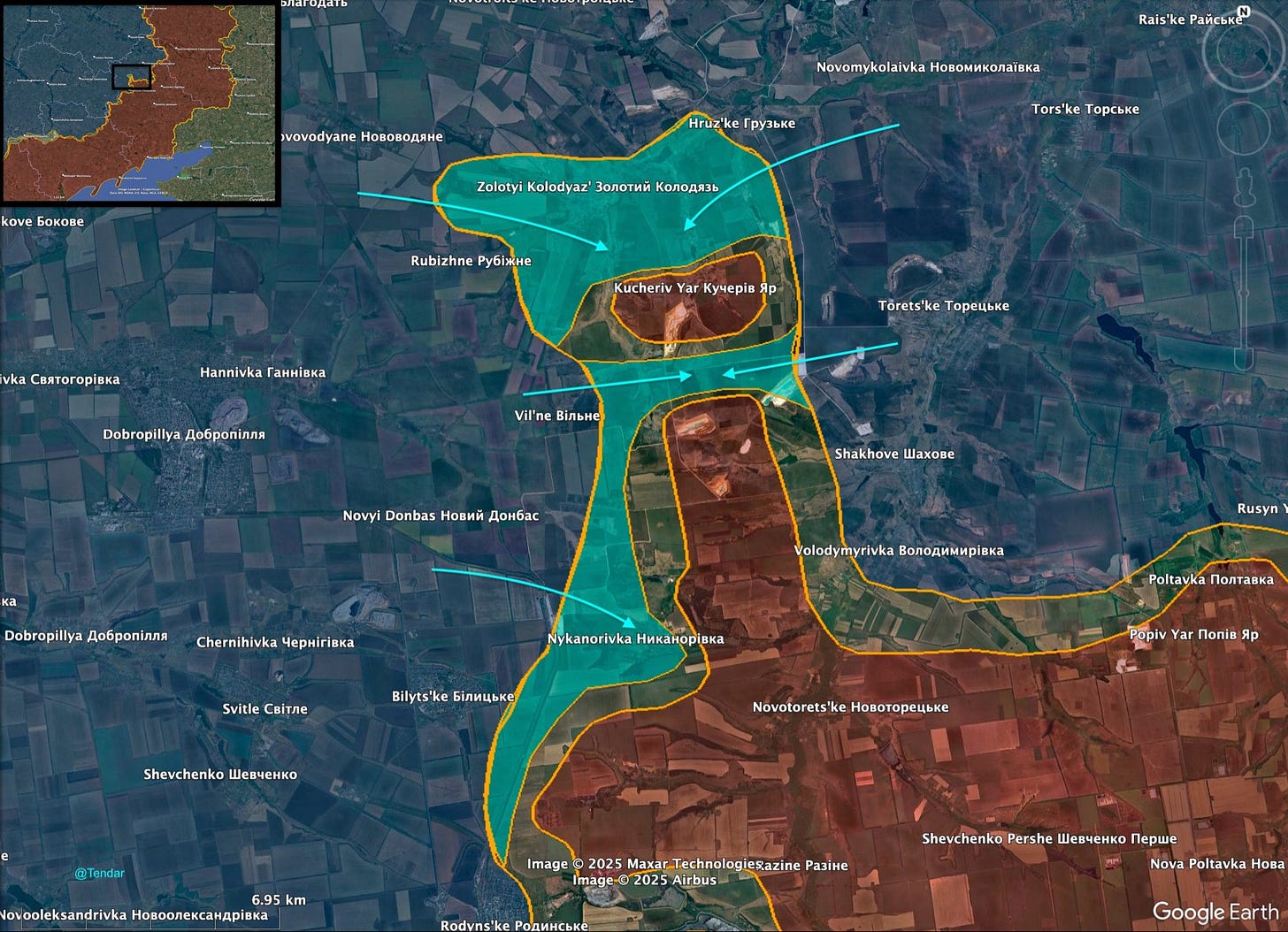Pokrovsk And The Gambler's Fallacy
A desperate offensive versus a desperate, but determined, defense
Timed to coincide with the Alaska summit, Russia’s offensive east of Dobropillya sought to exploit a gap in Ukrainian anti-tank ditches on the New Donbass Line through a combination of infiltration tactics and rapid advances using motorcycles. The operation has transformed into a cauldron battle, with Russians cut off by a concentration of Ukrainian units, including the famed 1st Azov Corps.
This gamble would have made more strategic sense had it been directed west, to actually cut off Pokrovsk, which Russians have been trying to capture for the last 18 months at tremendous cost. But the vulnerability that Russian reconnaissance had found lay to the north, so the assault went north. Dangerous as the result was, Russia could not reinforce and resupply the forces in Kucheriv Yar before Ukraine reacted, and there was no objective so important in that direction as to warrant the expenditure of men and resources.
Vladimir Putin is a natural gambler. As long as he has a stake, he will wager it on unlikely outcomes, expecting that at some point, a jackpot win will justify the previous lost stakes. The Battle of Dobropillya has been a longshot gamble, one that appears to have failed. We may draw lessons from it, and the Ukrainians will, and so will the Russian armed forces, but not Putin. He never learns, he merely finds another stake to gamble.
Keep reading with a 7-day free trial
Subscribe to Polemology Positions to keep reading this post and get 7 days of free access to the full post archives.



